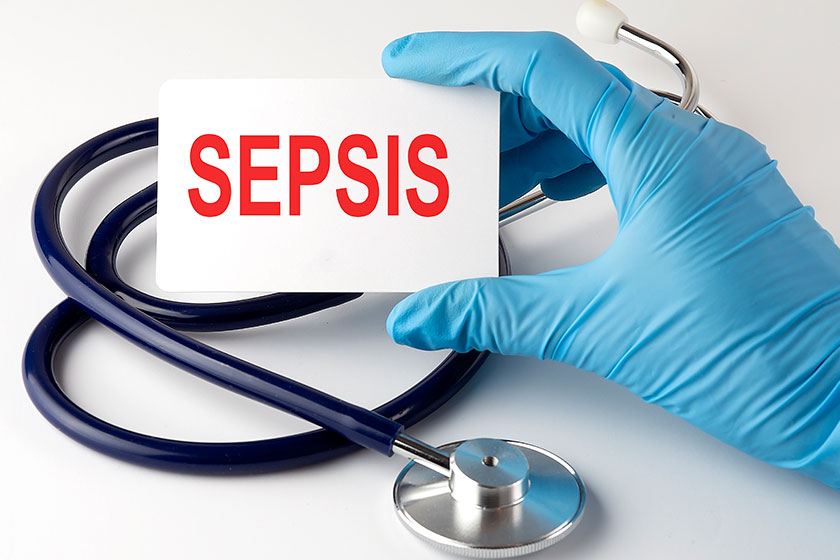Sepsis is a severe medical condition that can significantly affect the health and life expectancy of elderly individuals. The life expectancy of sepsis in the elderly is a critical topic that needs careful consideration, given the vulnerabilities of older adults. Understanding its impact on life expectancy can help improve care and outcomes for elderly individuals facing this condition.
Recognizing Early Symptoms of Sepsis in Older Adults
Identifying the early symptoms of sepsis in elderly individuals is crucial for timely intervention and treatment. Common symptoms include sudden changes in mental status, such as confusion or lethargy, which can be easily overlooked. Physical symptoms like rapid heart rate, low blood pressure and fever or hypothermia may also indicate the onset of sepsis.
Another key symptom to watch for is the presence of severe infection, often marked by symptoms such as difficulty breathing, extreme pain or discomfort and clammy or sweaty skin. These signs require immediate medical attention to prevent the progression of sepsis to a more severe stage. Early recognition and treatment are vital to improving the life expectancy of elderly individuals with sepsis.
How Sepsis Progresses in the Elderly: Key Stages Explained
Sepsis in elderly individuals typically progresses through three key stages: sepsis, severe sepsis and septic shock. The initial stage, sepsis, is characterized by the body’s response to infection, which can lead to inflammation and tissue damage. If left untreated, it can escalate to severe sepsis, where organ dysfunction becomes apparent.
Severe sepsis can further progress to septic shock, the most critical stage, marked by significant drops in blood pressure and organ failure. This stage requires immediate and intensive medical intervention to manage. Understanding these stages is essential for healthcare providers to intervene effectively and improve the life expectancy of elderly residents facing sepsis.
Impact of Sepsis on Life Expectancy in Older Adults
Sepsis can have a profound impact on the life expectancy of elderly individuals, often leading to a decline in overall health and quality of life. The severity of sepsis and the individual’s overall health condition play significant roles in determining the outcome. Studies have shown that elderly individuals with sepsis have a higher risk of mortality compared to younger populations.
Long-Term Health Effects of Sepsis on Elderly Survivors
Surviving sepsis can lead to long-term health effects that significantly impact the quality of life for elderly individuals. Many survivors experience lasting fatigue, muscle weakness and cognitive impairments, which can hinder their ability to perform daily activities. These health issues often require ongoing medical care and support from caregivers.
Effective Treatment Options for Managing Sepsis in the Elderly
Treating sepsis in elderly individuals requires a comprehensive approach that includes prompt medical intervention and ongoing care. Antibiotics are typically the first line of treatment to combat the underlying infection, followed by supportive measures such as fluids and medications to stabilize blood pressure and support organ function.
In severe cases, elderly residents may require intensive care and monitoring to manage complications and prevent further health decline. Rehabilitation and physical therapy can also play a crucial role in helping elderly survivors regain strength and improve their overall quality of life following sepsis treatment.
Preventing Sepsis in Older Adults: Tips and Best Practices
Preventing sepsis in older adults involves a proactive approach to health and infection control. Vaccinations, such as flu and pneumonia shots, are essential for reducing the risk of infections that can lead to sepsis. Good hygiene practices, including regular hand washing and wound care, are also crucial in preventing infections.
Supporting Recovery and Quality of Life After Sepsis
Supporting the recovery of elderly individuals after sepsis involves a multidisciplinary approach that addresses both physical and psychological needs. Rehabilitation programs, including physical and occupational therapy, can help elderly survivors regain strength and improve their ability to perform daily activities. Regular follow-up care and monitoring are essential for managing any ongoing health issues and preventing complications.
Providing emotional support and counseling is also important for addressing the psychological impact of surviving sepsis. Ensuring that elderly individuals have access to a supportive community and resources can enhance their quality of life and help them lead fulfilling lives after recovering from sepsis.
Ensuring the Best Senior Living Options in Our Community
At our exclusive 55+ living community, we prioritize comprehensive support to enhance your health and well-being. Our community provides a safe and supportive environment where the life expectancy of sepsis in the elderly is improved through proactive health measures and care. Senior living options in our community include personalized care plans and state-of-the-art services and amenities designed for your comfort and health. At our community, we focus on improving your quality of life and ensuring that you receive the best care and support available.






